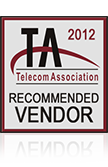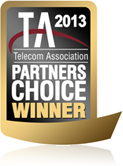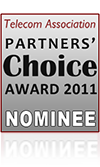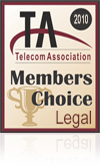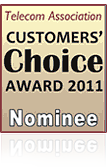MVNO Licensing
While the regulatory requirements to enter the wireless resale or mobile virtual network operator (MVNO) marketplace may be somewhat less restrictive than those regulatory requirements applying to the prepaid and postpaid telecommunications sectors, there are still substantial regulatory requirements to consider.
MVNO Licensing Lawyer
With more than 20 years of experience as a telecommunications lawyer, Ben Bronston has the experiences and skill to help your MVNO obtain all necessary licenses and make it through all red tape. Ben Bronston is a nationally-recognized expert on telecom law, and has helped many wireless start-ups grow. Call our law firm today at 888.469.0579 to set up a consultation.
Mobile Virtual Network Operator Licensing Issues
Regulatory Classification
MVNOs and other wireless resellers generally fit the regulatory definition of Commercial Mobile Radio Service (CMRS) even if they do not own facilities and simply resell the services of facilities-based CMRS providers. Therefore, MVNOs will be regulated at the federal and state level substantially like CMRS providers.
Federal Requirements
FCC International Authorization (Section 214)
An MVNO must obtain FCC Section 214 authority if it plans to provide U.S.-international service. Unless the applicant is affiliated with a foreign entity or other unusual issues arise, the application is usually acted on by the Federal Communications Commission (FCC) in just over two weeks (from date of electronic submission).
FCC Registration Form 499-A
MVNOs are also required to register with the FCC and the Universal Service Administrative Company (USAC) by filing a signed copy of certain pages of FCC Form 499-A with USAC. Among other things, the form requires a company to list an agent for service of process in the District of Columbia and calls for a listing of states where the company either provides or anticipates providing intrastate service in the future.
The FCC Form 499-A registration is particularly important. One reason is that it automatically ties a company into the FCC’s Universal Service Fund (USF) contribution system, identifying a company as a payer under the program. Another reason is that 499-A registrants are added to the FCC’s online, searchable database of registered companies.
Under the FCC’s rules, facilities-based carriers are only allowed to contract with MVNOs on the FCC registration list. Thus, failing to register will not only subject a company to potential FCC enforcement action, but could prevent it from being able to enter agreements with underlying providers.
Once registered, MVNOs generally must file the FCC Form 499-A annually and FCC Form 499-Q quarterly to report revenues which are used to calculate contributions to funds for USF, the North American Numbering Plan (NANP), Local Number Portability (LNP) and Telecommunications Relay Service (TRS). Your telecommunications attorney can help you ensure continued compliance.
USF Contributions
The most important FCC fee is for the federal USF. However, the calculation of USF contributions can be different for MVNOs than it is for traditional telecommunications providers. The FCC has instituted a “safe harbor” by which a wireless provider can opt to include only 64.9 percent of its revenues in its contribution base (based on the assumption that only 64.9 percent of wireless minutes are used for interstate calls).
CALEA
MVNOs must comply with the Communications Assistance for Law Enforcement Act (CALEA). CALEA is intended to preserve the ability of law enforcement agencies to conduct electronic surveillance by imposing specific obligations on “telecommunications carriers” for assisting law enforcement, including delivering call interception and call identification functionality to the government with a minimum of interference to customer service and privacy.
CPNI
MVNOs must also comply with the FCC’s rules protecting Customer Proprietary Network Information (CPNI), which is the personally identifiable information derived from a customer’s relationship with a telecommunications provider, including call-identifying information and customer identity. Under the current CPNI rules, MVNOs must establish safeguards and procedures for the use of CPNI and implement a system under which the status of a customer’s CPNI approval can be clearly established prior to the use of the CPNI. Recently announced federal rules likely to take effect in the fall of 2007 impose additional requirements on providers in order to safeguard CPNI.
State Regulation
Registration
The Omnibus Budget Reconciliation Act of 1993 preempts states from regulating entry and rates charged by wireless services. However, it does not prohibit states from requiring that wireless providers and resellers register with the state before providing service. Generally, these state registrations are effective upon filing.
For instance, California requires MVNOs to register with the state and provide limited corporate information. Other states also have registration requirements that require corporate contact information substantially similar to that required in California. However, each state is different and some state registrations are more complicated, requiring information such as service and facilities descriptions, geographic scope of service, rates and Eligible Telecommunications Carrier status.
Legal Fees and Other Costs
The costs associated with registration include legal fees for preparation of the applications, fees assessed by some Public Utilities Commissions (PUCs) for filing applications and other minor costs.
Other Regulation
On-going state regulatory obligations can include PUC fees, state USF contributions, emergency 911 and E-911 surcharges, local taxes (on the state, county and municipal level), and other taxes and fees specifically targeting telecommunications services. The entities that enforce these fees, surcharges and taxes are likely to impose interest, penalties, and possibly even take actions to de-authorize companies from providing service in the state (in egregious cases) if the payments are not made. MVNOs should develop an effective long-term compliance strategy that includes periodic re-evaluation of on-going state regulatory obligations.






